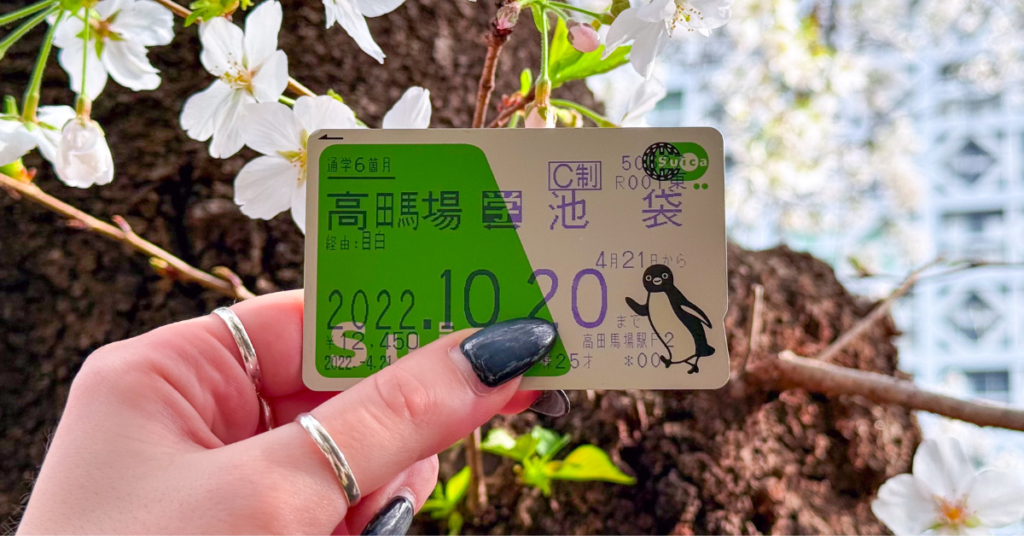Preparing for a move is a daunting task regardless of where you live, and the added stressor of being a foreign resident in a country known for its red tape and endless paperwork can make it much more difficult. Relocating in Japan requires considerable amounts of time and money, but with a bit of effort and the right preparation, there are ways to ensure your move goes as smoothly as possible.
In this article, we look at what you need to do to relocate in Japan and offer some insight into what you might expect it all to cost.
Before you move
There are four main things you need to do before moving out of your current place: give notice, contact utility companies, inform your ward office, and redirect your mail at the post office.
Note these steps may differ depending on your accommodation. For example, if you are moving out of a share house, you generally won’t need to contact the utility companies once you have given notice of your move-out date and you will just need to pay whatever is outstanding on your bill. Each share house company will have slightly different move-out processes, so please confirm with the company directly.
Here are the four main to-dos when moving out in further detail.
Give notice
Inform your current landlord or accommodation provider as soon as possible of your intended move-out date. Most contracts require one month’s notice, although this will depend on your individual rental agreement so always refer to your contract first and foremost. In any case, it’s best to give notice early to avoid paying for any time you won’t be living there.
Once you give notice, your accommodation provider will schedule an inspection on the date that you plan to leave. Most contracts will state that the lessee (you) will restore the property to its original condition before moving out.
The landlord or accommodation provider will take into account how long you have lived at the property for, and normal wear and tear, which is not your responsibility to fix.
Usually the landlord or accommodation provider will cover basic cleaning expenses after tenants move out. But it’s also common for a rental agreement to state that these expenses can be deducted from a tenant’s security deposit when they move out.
You can expect this to cost around 1000-2000 yen per 1㎡, excluding tax. Yes, this can come to a lot of money, but it’s standard practice in Japan.
Contact utility companies
Next, you need to contact your gas, electricity, water, and internet providers to tell them you will be relocating and provide a date when you need everything turned off. This can mostly be done online, usually in Japanese.
If you need to call the companies, you can say:
引っ越すので、ガス/電気/水道/インターネットの利用を停止したいのですが。
Hikkosu node, gasu/denki/suidō/intānetto no riyō o teishi shitai no desu ga.
I’m moving house and I would like to cancel my gas/electricity/water/internet.
You will need to tell them your name, customer number, address, phone number, your new address, and the date you’re moving out.
Generally you need to be present in your apartment when they visit to turn off the services and give you the final bill. Try to schedule all of these on the same day.
Inform your ward office
Remember how you had to visit your local ward or municipality office to register your address when you first moved in? In a similar fashion, you will need to visit them to tell them you’re moving and relocating in Japan.
You need to fill out a tenshutsu todoke 転出届, or moving out form. This is very important as you won’t be able to register your address with your new ward (required for tax and ID purposes) without the documents from your previous ward.
If you’re moving within the same ward or city, you still need to visit your local ward or municipality office to give notice that your address has changed. Instead of filling in the moving out form, you just need to inform the city or ward office that your address has changed within the same city/ward. Make sure to bring your residence card and your My Number. Your address will then be printed on your residence card and My Number.
Redirect your mail
When relocating in Japan, you can get your mail forwarded to your new address for one year for free. After that, any of your mail that’s still sent to your old address will be returned to the sender.
To redirect your mail, you’ll need to fill in a tenkyo todoke 転居届 form either online or at your local post office. For more information on this process, visit the Japan Post website (Japanese only).

Moving costs
On top of your outstanding utility bills and cleaning fees, there are a few other key expenses to factor in when relocating in Japan.
Hiring a moving service
There are a number of full-service moving companies that will provide boxes, pack your things for you, and take them to your new place.
The cost will depend on how much stuff you’re moving and where you are relocating to. Some factors that will increase the price of your move:
- If you’re moving during peak season (usually March to April)
- If you request to move over a weekend or a public holiday (or both)
- If you’re moving a long distance
- If you have bulky/large items such as a bed, couch, large desk, etc
Moving companies generally offer student discounts, gakuwari 学割, and many also have a tanshin 単身, or singles, service.
Easy Furnish
A moving service like Easy Furnish makes the process of moving quick, uncomplicated, and convenient for anyone relocating in Japan, including those who are not yet confident enough to complete the moving process in Japanese. For any Go! Go! Nihon students, Easy Furnish is offering a ¥5,000 discount on moving services.
Apply to move with Easy Furnish and get your discount through the form here.
Hiring a moving van
If you can legally drive in Japan, you might explore hiring a moving van instead of a full moving service. You won’t have the convenience of having someone else pack and move your things for you, but you might save more money by doing it yourself (hopefully with the help of some friends too!).
For example, if you were to hire a small dry van from car hire company Nippon Rent-a-Car for half a day, you would be looking at paying from 17,600 yen.
If you don’t have a Japanese driving license, you could look into a service like Rentorabin. This is an hourly truck rental service that comes with the vehicle and a driver. The driver will help you with loading and unloading if you choose.
For a light truck with driver assistance for three hours, you would be looking at paying about 22,000 yen.
Delivery services
If you don’t have many things, you could consider a door-to-door delivery service, or takuhaibin 宅配便. For example, with Yamato Transport, you can send your things from your old place to your new place, and they will normally arrive the next day. More distant destinations like Okinawa or Hokkaido can take two days.
The cost will depend on the size, type, and weight of what you’re sending, as well as the destination. The largest option offered by Yamato Transport is a parcel size of up to 200cm weighing up to 30kg. This would cost you under 4000 yen to send within the same geographic region e.g. within Kanto, or within Kansai.
Getting rid of unwanted items
You might be thinking, maybe it’ll be easier and cheaper to throw away bigger items and buy them new. Not only is this terrible in terms of waste, but it’s also not as convenient as you might think.
The usual way people get rid of larger items in Japan is through their city or ward’s sodaigomi 粗大ごみ, or large rubbish collection, service. To arrange this, you need to:
- Call them, or fill in an online form if your ward or municipality offers this;
- Specify what you’re throwing away and the size;
- Then, they will tell you how many sodaigomi shoriken 粗大ゴミ処理券, or oversized rubbish stickers, you need to buy for your items (you can get them from convenience stores), and also when and where you need to place them outside for collection.
How much this costs will depend on what you want to throw away. Additionally, some items can’t be thrown away and each ward/municipality will have their own sodaigomi restrictions.
This service can be helpful if truly necessary. However, we recommend trying to sell or give away any unwanted items first through online marketplaces such as Facebook or Mercari. There are a number of buy-and-sell groups within Japan on Facebook (such as Tokyo Sayonara Sales), as well as groups such as Mottainai Japan where you can give things away for free.

Initial apartment rent costs
The set-up costs to rent an apartment in Japan are notoriously high. Be prepared to spend up to six months’ rent when moving into a new place. Why? Usually you have to factor in:
Real estate brokerage fee, chūkai tesūryo 仲介手数料, is usually equivalent to around one month’s rent.
Security deposit, shikikin 敷金, usually one to two months’ rent.
Key money, reikin 礼金, non-refundable, one to two months’ rent. This came out of World War II as a way for renters to show gratitude to landlords during the housing shortage. Another theory is that key money is a way for landlords to get rid of any potential renters who aren’t serious or may not be able to pay their rent.
If you speak Japanese and have decent negotiating skills, some building owners may reduce the key money or even waive it entirely – but don’t count on it. You may also see some apartments advertising low move-in costs and no key money, but often the monthly rent for these places is much higher and you may end up paying more in the long run.
Guarantor fees, hoshōninhiyō 保証人費用, if you’re a non-Japanese resident. A guarantor, or hoshōnin 保証人, is a Japanese person who can act as a guarantor for you and cover your rental costs if you’re unable to. If you don’t have anyone who can do this for you, you’ll need to pay for a guarantor company, or hoshōningaisha 保証人会社, which can cost between 10%-100% of your monthly rent.
Fire insurance, kasai hoken 火災保険, will set you back between 20,000 – 40,000 yen for two years. This will renew when, or if, you renew your apartment lease.
Key exchange fee, kagi kōkan hiyō 鍵交換費用, usually around 10,000 – 20,000 yen so the landlord can replace the lock and keys.
If all these extra fees seem daunting to you and you would prefer something more affordable, we highly recommend share houses as an alternative option. Not only are they much more renter-friendly, but you often don’t have to worry about buying your own large furniture. Plus, you can meet people from all over the world as well as Japan.
Find accommodation with ease with Go! Go! Nihon
Go! Go! Nihon partners with a number of accommodation providers all over Japan. Whether it’s an apartment, share house, dormitory, or homestay you’re looking for, we aim to help make the accommodation-finding process as simple as possible when relocating in Japan. Contact us for more information, or visit our accommodation page.
For information about life in Japan, follow our Go! Go! Nihon blog.













